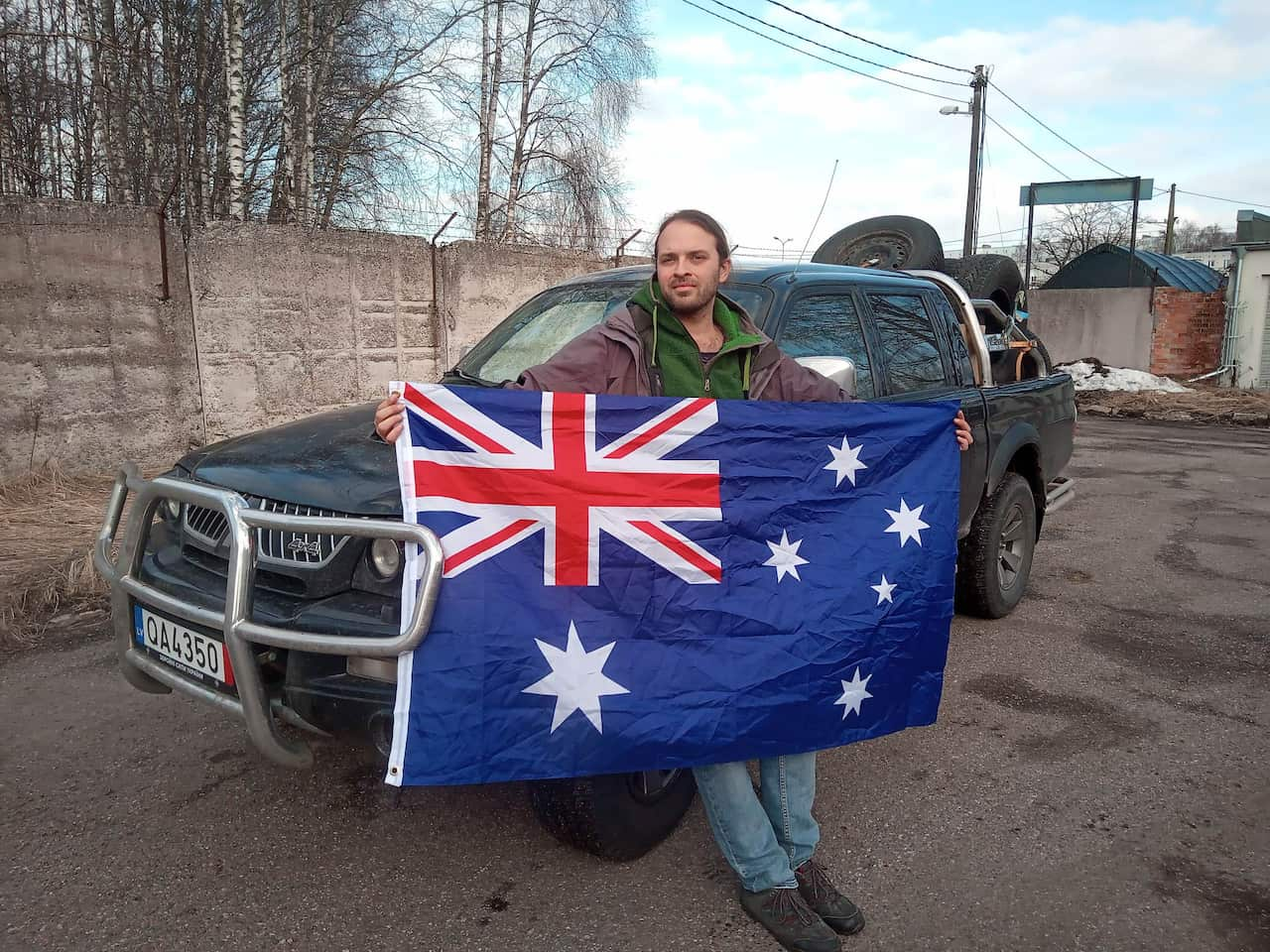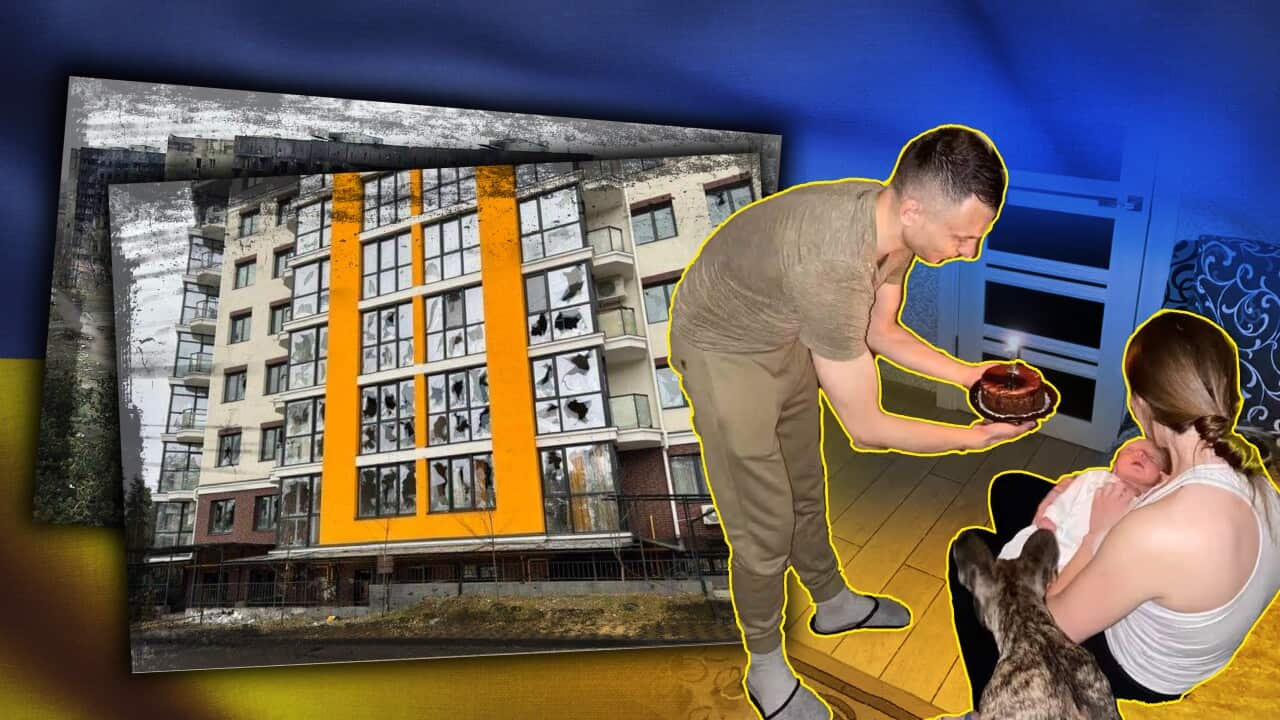Key Points
- Moscow State University graduate, Ruslan, says he didn't expect to have his application to study at Deakin University rejected.
- Russian Australian academics have condemned the Melbourne-based university's year-old policy as 'discriminatory'.
- The policy comes as a Deakin professor made comments to Russian state publication TASS, explaining the invasion as illegal but in context of provocations by NATO and the US.
Ruslan* hoped to continue his studies and “enjoy multiculturalism” when he arrived in Australia in mid-2022 on a tourist visa from Russia.
However, the former teacher said his hopes were recently dashed when his application to enrol in the Master of Creative Arts course at Deakin University was rejected due to a policy enforced by the Melbourne institution in the wake of the war in Ukraine.
In an email response sent to Ruslan in March, which has been seen by SBS Russian, the university stated: “Due to current circumstances, the university is not accepting any new students from Russia (this includes non-Russian nationals that are currently based in Russia and Russian nationals based in or outside of Russia).”
The response pointed to the policy, adding that the university was “unsure” when the rules would change, while further stating, “We understand this may come as a disappointment, and wish you the best in your future academic endeavours”.
Introduced more than a year ago, the policy was among several announcements made by Australian universities following the commencement of hostilities in Ukraine, including the Australian National University, Monash, RMIT and La Trobe.
Ruslan said the Deakin response was “completely unexpected” and it took him time to fully grasp the outcome.
“It was very upsetting because a lot of things can be amended. If you, for example, incorrectly filed documents, that can be amended.
“It's impossible to amend your place of birth, the place where you came from."
He applied for the course to explore avenues to remain in Australia after vising a friend in Melbourne, while also taking English language classes.
Ruslan posted about his experience on social media with a screenshot of the university's rejection email.
“A lot of people then wrote to me, including [staff] from Australian universities. They said that there are universities that are more democratic and accept students from Russia,” he said.
“I will try to apply to other universities. The only thing is that now my choices are narrowing down.
“And I never thought that I would have to choose a university in Australia not on the basis of my preferences but considering whether Russians are accepted there or not."
SBS Russian has made several requests for comment to Deakin about the policy without a response.
Universities Australia declined a request to provide a statement about the case.
However, a spokesperson from the Australian Department of Education said: “This is a matter for the individual institution.”
“The government does not have a role in enrolment processes, however, universities are required to meet a range of legislated standards under the Higher Education Standards Framework (Threshold Standards) 2021 to ensure their admissions policies are clearly documented, readily available and consistently applied," the spokesperson said.
“This includes providing current and prospective students with access to internal university complaints processes which are capable of resolving grievances about any aspect of their experience with the higher education provider, and that there are policies and processes which deliver timely and fair resolution of these complaints."
'Incomprehensible duality of position'
Among the responders to Ruslan’s case was Monash University Associate Professor Dr Slava Kitaeff, who was one of the authors of an open letter calling on Australian universities to consider special enrolment options for Ukrainian students, as well as students from Russia and Belarus who face repression for their anti-war position.
Dr Kitaeff believes the position held by Deakin University is “discriminatory” and “un-Australian”.
“We all know very well that the protest in Russia was a protest of the young, a protest of students. And we know a number of cases when students were expelled from Russian universities for their anti-war position, many have already ended up in prison. Many students had to quit their studies and flee Russia.
“These students are just as much victims of the regime as Ukrainian students. Ukrainian students lost their homes and they had to flee. But so did many Russian students. Those who openly opposed the war were forced to flee the country."
When asked about his stance on the war in Ukraine and politics in Russia, Ruslan responded with caution, noting that he is likely to return to Russia if he isn’t accepted by another Australian university.
“I can say that I don't support the Russian government in terms of what is happening now. I absolutely don't like it. I'm against any violence, I want this situation to end so we all could live in peace," he said.
“What is happening there was one of the reasons why I decided to continue my studies at an Australian university, to live here as a student and enjoy this spirit of a multicultural Australia. I thought it was wonderful."
Dr Ilya Fomin is a Russian-Australian academic at Macquarie University, who is currently in Ukraine accompanying others on humanitarian missions.
He believes the Deakin policy should be challenged.
“It seems to me that this case [with Ruslan] may well be regarded as discrimination and not only can, but should be challenged.
“I think that in Australia, the core values, which developed after hundreds of years of its own bloody and very difficult history, were the values of a multicultural and tolerant society in which discrimination on any grounds is prohibited."

Dr Ilya Fomin in Ukraine
Dr Kitaeff said the comments represented an “incomprehensible duality of position” for Deakin.
Dr Burchill clarified his comments in Russian media to SBS: “It should be noted that when the Russian version was returned to me, I restored a couple of crucial sentences that had been omitted. The second version that went to print did not faithfully capture the balance of my views."
“I said the invasion was illegal under international law and a clear breach of the UN Charter. That the historical context for the invasion included various provocations, including the eastward expansion of NATO and US meddling in Ukrainian politics, the first which violated the agreement between [George] Bush Senior and [Mikhail] Gorbachev. I said these provocations did not justify the invasion but help to explain it," Dr Burchill said.
“I said the problem stemmed from the failure at the end of the Cold War to establish a viable and mutually reassuring geo-strategic architecture that would have avoided the conflict we see today."
The Russian embassy in Canberra said it is “understandable” that this situation has caused a negative reaction in the Russian-speaking community of Australia.
“We are talking about open and even demonstrative discrimination," an embassy spokesperson said.
“It is unfortunate that Deakin University also succumbed to anti-Russian hysteria, which, by the way, is being fuelled by SBS."
• Name withheld at the request of the talent.
Share




